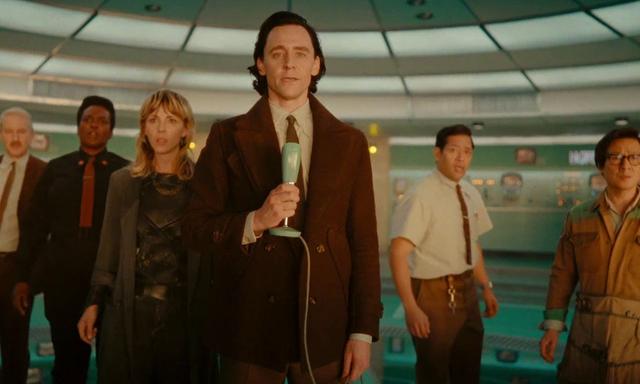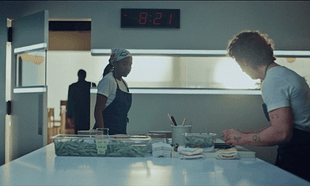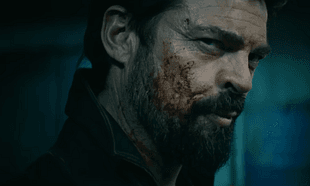It's telling that 'Loki' is - thus far - the only Marvel series post-Netflix to get a second season.
'Hawkeye', 'Falcon and Winter Soldier, 'WandaVision' and 'Ms. Marvel' have yet to be re-upped for another season, yet 'Loki' was set for a second season almost from the get-go. Given how the first season ended, it felt like there was a clear off-ramp for the show to divert into the movies and leave the compelling weirdness behind. Despite the so-so output of the Marvel machine of late, 'Loki' is a reminder that it can sometimes make enjoyably zany stuff. Where else would an entire episode be devoted to doing a cop-show interview on a manipulative actor who's also a time traveller?
Tom Hiddleston and Owen Wilson are paired up with a few new faces along the way, mainly Oscar-winner Ke Huy Quan who plays the TVA's all-powerful maintenance man, Ouroborous - or OB, for short. Quan's enthusiasm is infectious, making what would be challenging and clunky exposition into a kind of charmingly dorky monologue. Tara Strong is back in an expanded role as Miss Minutes, while 'Game of Thrones' alum Kate Dickie turns up as a high-ranking TVA member and throws a few barbs around the room. The first season breakout, Sophia DiMartino, is back but her role as Loki's female variant is diminished in favour of Jonathan Majors' villain - Kang, or Victor Timely, or He Who Remains - taking more of a centre stage.
If you find yourself confused and flustered by the multiversal shenanigans of late Marvel, 'Loki' probably isn't going to help you any. In fact, of the four episodes we saw, Loki and laidback time policeman Mobius - played with real charm by Owen Wilson yet again - zip their way through different dimensions and different time periods with ease. The first season had the feel of a high-budget 'Doctor Who' and the second season is much the same, reuniting a game Tom Hiddleston with a daffy plot about the Sacred Timeline, Throughput Multipliers, and an all-powerful villain that is waiting in the wings to cause untold chaos across multiple timelines. There's more than a few moments when you'd yearn for the relative simplicity of earlier Marvel entries, when the action felt street-level and more intimate. It's not to say that the second season of 'Loki' is a miss, or that it can't sustain itself.
Though it lost writer Michael Waldron to 'Avengers: Secret Wars' and director Kate Herron to her own projects in the second season, 'Loki' still keeps chugging along with its story and continues to be the best of the post-Netflix Marvel shows, far outshining recent duds like 'Secret Invasion' or so-so efforts like 'Ms. Marvel'.
Of course, it's impossible to talk about the second season without addressing the troubling allegations and a domestic violence case against Jonathan Majors. His character, who turns up in the third episode and is a highlight of the season, is now a major part of the Marvel machine. So far, Marvel and Disney have yet to comment on any of the allegations surrounding Majors - yet outside of the machine, it's clear that it's having an impact. Majors was dropped by his talent agency, Entertainment 360 and by his PR firm, as well as losing out on other roles in the wake of the allegations.
All of this, however, happened before the second season of 'Loki' was filmed and never once impacted production on the show. Yet, for a story about alternate timelines and what-ifs, you have to wonder if his character would be such an integral part of it all if everyone knew what was coming.





















































































